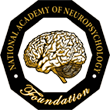Importance of Rehabilitation
Once a person who has sustained a TBI has been medically stabilized and their acute injuries have been addressed, they may have an array of persisting problems that are best treated through a coordinated continuum of rehabilitative services. The rehabilitative services address physical, cognitive, behavioral and familial issues that arise in the wake of a TBI. These services are often provided in a stepwise fashion from most intensive (inpatient) to a gradual reduction in outpatient intensity from coordinated day programs to less frequent therapies. The goal of rehabilitation is to improve a person’s ability to function in multiple life domains through the provision of targeted, specialized services. It is not enough to just survive a severe TBI; effective, well-coordinated rehabilitation can make the difference between survival or regaining a quality and rewarding life. Neuropsychologists have an important role in shaping rehabilitation with their specialized expertise to assess cognitive and behavioral strengths and weaknesses after TBI, their ability to provide ongoing assessment of gains in these domains, and in the guidance they can provide in treatment planning. Rehabilitative treatment seeks to identify and then address residual deficits through a well-coordinated interdisciplinary team approach (including Physical Therapy, Occupational Therapy, Speech and Language Pathology, Psychotherapy and Neuropsychology).


